'I am proud of Maharashtra and the city of Mumbai, that this is a state which has done more number of tests than any state in India.'
'The more you test, the more number of cases you will pick up.'
'If you do not do the tests, then you are groping in the dark.'
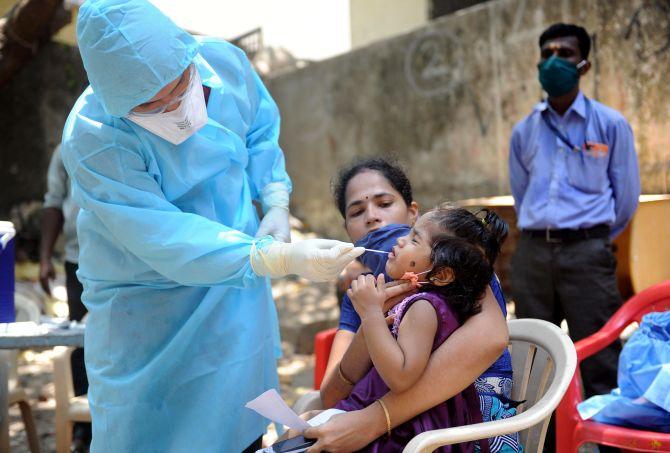
Dr Sanjay Oak heads the nine-member medical task force for Maharashtra that was very recently instituted to help Chief Minister Uddhav Thackeray and his government conquer COVID-19.
Dr Oak is a pediatric surgeon and laparoscopy specialist, with training from Johns Hopkins Hospital in Baltimore.
He was the dean and director for several years of the King Edward Memorial Hospital and the Seth Gordhandas Sunderdas Medical College in central Mumbai as well as the director of two other BrihanMumbai Municipal Corporation facilities, the Lokmanya Tilak Municipal General Hospital (Sion Hospital) in north central Mumbai and the B Y L Nair Hospital in south Mumbai.
Dr Oak has in-depth knowledge on public healthcare and many thoughts on how to move beyond its limitations. And often writes about it.
Subsequently, he worked as the vice chancellor of the Dr D Y Patil Vidyapeeth, Navi Mumbai. He is now the CEO of the Prince Aly Khan Hospital in south central Mumbai.
Super busy putting in place the special guidelines his team recommended to help Mumbai and Maharashtra contain the pandemic attack, the energetic, precisely-spoken and reassuring-sounding Dr Oak spared ten minutes to Rediff.com's Vaihayasi Pande Daniel to crisply discuss the situation:
What are the one or two measures you immediately plan to suggest to the state government to help with the situation in Maharashtra, and Mumbai specifically?
It is not one or two measures.
The task force (he heads) has submitted a 50-page report as to what we need to do.
Quite a few significant amount of the suggestions have been already executed.
We have separated hospitals as COVID hospitals and non-COVID general hospitals.
Second, we have set up treatment protocols of how the patients are to be treated.
Third, we have classified the drugs and the possible drug combinations.
Fourth, we have classified the drugs that are available in the state and in India and which we may need to procure from overseas. The government is at it.
Fifth, we have classified and defined the discharge policy for these patients, so that the patients can be decongested.
Sixth, we are augmenting the critical care capacity of the city of Mumbai, in private, as well as in public sector by getting the intubating equipment.
Seven, we are augmenting the dialysis facility of the city by setting up our own plans and procuring machines and people. And all these things have been put into practice.
Eight, we are looking at the pregnant women, who are likely to deliver at the latter half of 2020.
And for all the antenatal care and the actual deliveries we are isolating the Wadia hospital (central Mumbai) in the public sector to help these ladies. Nair becomes a complete COVID hospital but COVID maternity continues at Nair.
So these are (some of) the various measures that have been done.
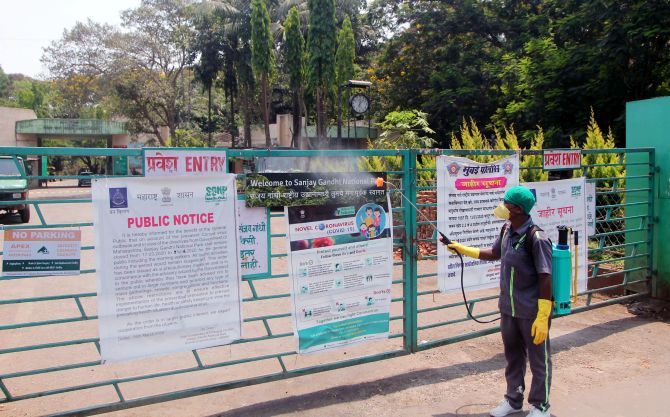
What do you feel is a reason for the much higher cases in Maharashtra? What are some of the most preventable reasons?
I am proud of Maharashtra and, in fact, the city of Mumbai, that this is a state which has done more number of tests than any state in India. That's point number one.
The more you test, the more number of cases you will pick up.
If you do not do the tests, then you are groping in the dark.
So probably then it is the density of the cities, the people population all these things are reflected (in the higher figures for the state).
It is not the positivity (in COVID-19 cases) that matters now.
It is lessening of the morbidity and getting down the mortality to as low as possible. That is what matters.
And that is where we are working.
Production: Rajesh Karkera/Rediff.com
There are reports about Mumbai having 77 percent fatalities in the above 50 age group, while the majority of the cases are in the below 50 age group.
The 7.5 mortality for Maharashtra makes it the fourth highest in India.
How do these things play a role?
I think 7.5 per cent mortality is certainly high.
And that is what I said, that is the prime objective of the task force, under my chairmanship, to bring it down to at least half.
And I'm happy to say that it's happening, because yesterday (April 16) we have lost only two cases.
Day before yesterday (April 15) we have lost 42 cases in Mumbai. And that it is the right direction that we are adopting.
If you follow cases, if you have the statistical data robust enough, then obviously you will have true figures and you won't fudge figures. As I told you, it the population density, the lack of social distancing.
See, it's very easy to say socially distance, but in Mumbai in a 10 by 10 square feet (space) at least six people live together. That is the reality of life.
So those are the things which are making our task arduous and difficult.
But not impossible.
And that's what we are doing.
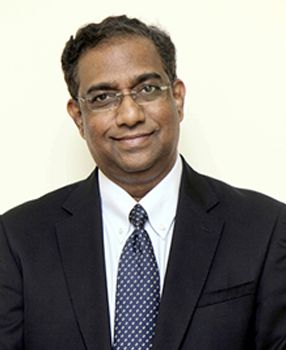
I believe the BMC is doing a wonderful job. What are some of the things that it has been doing very well at both the management and the worker level, that you would applaud?
I won't yet applaud ourselves. I would say we are on the right track.
But to answer your question, the BMC and the state government both are working, absolutely shoulder to shoulder with each other.
We have stratified the work.
There is a group of workers who are working in the community.
There is a group of workers who are working to prevent the spread.
There is a group of workers who are making it possible for people to get isolated and quarantined.
There is a group of people who is working to follow up on the quarantined people.
Then there's a group of people who is working to stratify the risks in the patients who are presenting at the casualties (of various hospitals).
And then yes, obviously there are doctors to look after them and the extensive ICU care.
And there's a huge machinery, which is involved in cleaning, disinfecting, and various other ancillary things.
That's how the BMC is working.
And they are all putting in a huge effort?
I spent 24 years in the BMC and I was involved in the management of about four disasters -- (like) the 26 July water deluge (2005), then it was H1N1 (2009), then it was the bomb blast (July 11, 2006) in the locals (trains).
Out of all this, this particular time it is an unprecedented difficulty which we are faced with.
And I would say this is the best response they have ever given.
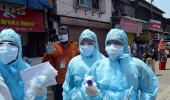







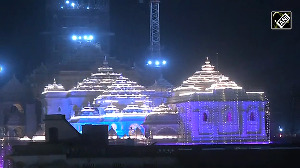


 © 2025
© 2025